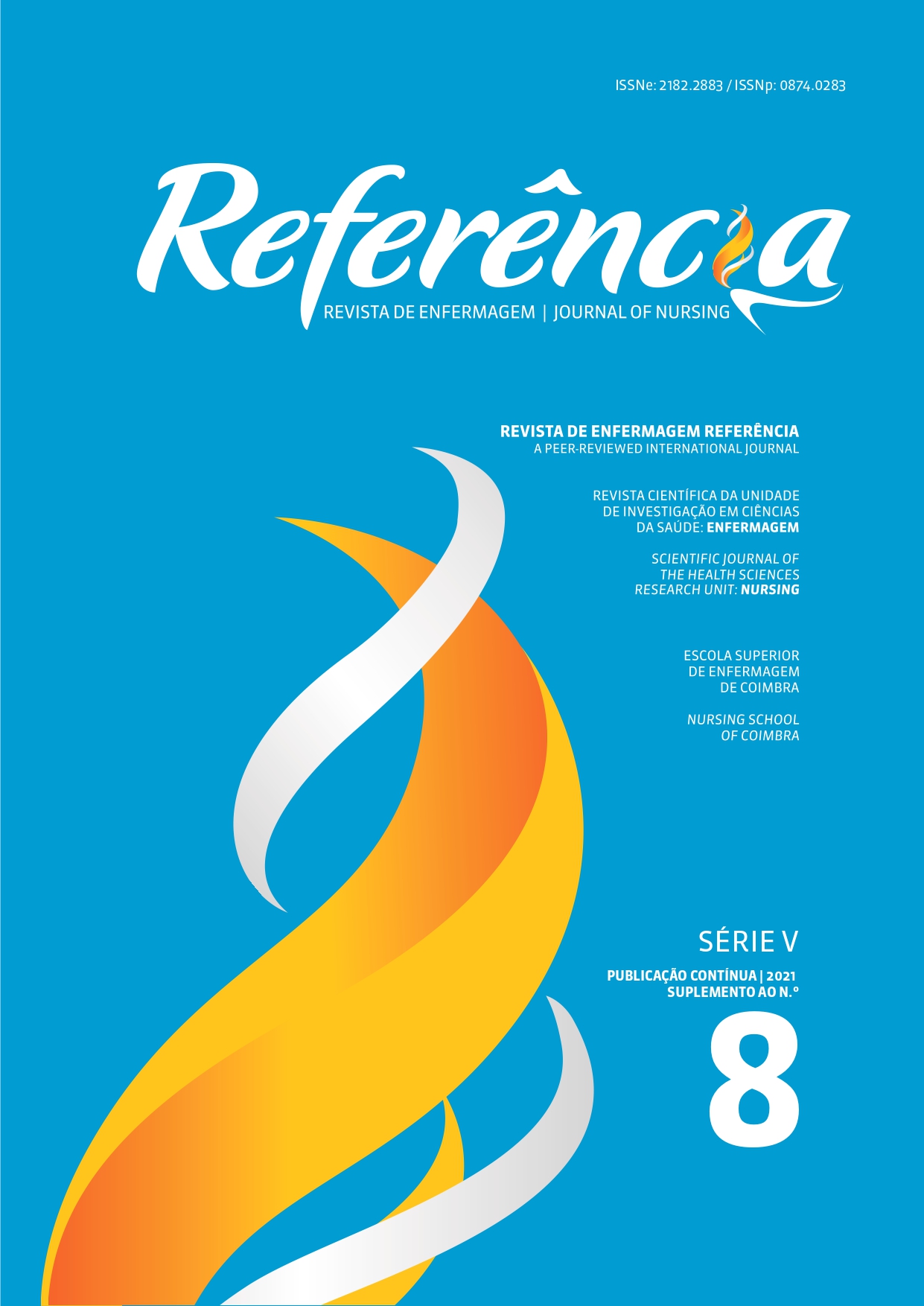Undergraduate Nursing Degree: Overview of leadership education in Portugal
DOI:
https://doi.org/10.12707/RV20203Keywords:
nursing, students, nursing, education, higher, leadership, competency-based educationAbstract
Background: Effective leadership in nursing practice is associated with students’ preparation during their academic training.
Objective: To identify leadership content in Portuguese undergraduate nursing programs.
Methodology: Online consultation of course unit syllabuses of 17 undergraduate nursing programs from 39 higher education institutions, whose content was available, conducted between - December September-December 2018. Data were organized using Excel software to characterize the course units, and content analysis was performed using IRAMUTEQ 0.6 alpha 3 software.
Results: Leadership content was identified in course units that present the terms “management” and/or “administration,” associated with “nursing” and/or “health,” and other related terms, particularly “health care organization.”.
Conclusion: Leadership education is present as content in all programs, although it is not taught as a specific course unit in any undergraduate nursing degrees studied. Leadership education is recognized as essential for developing students’ abilities and skills. No links between leadership education and clinical practice were found in the course units.
Downloads
References
Abelha, D. M., Carneiro, P. C., & Cavazotte, F. S. (2018). Transformational leadership and job satisfaction: Assessing the influence of organizational contextual factors and individual characteristics. Review of Business Management, 20(4), 516–532. https://doi.org/10.7819/rbgn.v0i0.3949
Duygulu, S., & Kublay, G. (2011). Transformational leadership training programme for charge nurses. Journal of Advanced Nursing, 67(3), 633–642. https://doi.org/10.1111/j.1365-2648.2010.05507.x
Dyess, S., & Sherman, R. (2011). Developing the leadership skills of new graduates to influence practice environments. Nursing Administration Quarterly, 35(4), 313–322. https://doi.org/10.1097/NAQ.0b013e31822ed1d9
Ebrahim, S. (2018). Multi-professional approved clinicians’ contribution to clinical leadership. The Journal of Mental Health Training, Education and Practice, 13(2), 65–76. https://doi.org/10.1108/JMHTEP-03-2017-0019
Fischer, S. A. (2016). Transformational leadership in nursing: A concept analysis. Journal of Advanced Nursing, 72(11), 2644–2653. https://doi.org/10.1111/jan.13049
Laut, R., Wiknik, A., LaCroix, K. M., Bunting, D., & Pettorini--D’Amico, S. (2018). Leading the nurse within: Developing confident leadership skills for new graduates. The Journal of Continuing Education in Nursing, 49(8), 356–359. https://doi.org/10.3928/00220124-20180718-06
ICN (2019) Plano Estratégico (2019-2023). https://www.icn.ch/sites/default/files/inline-files/ICN_RA%202019_V04_0.pdf
Maughan, E. D., Bobo, N., Butler, S., & Schantz, S. (2016). Framework for 21st Century School Nursing Practice. NASN School Nurse, 31(1), 45–53. https://doi.org/10.1177/1942602X15618644
Ordem dos Enfermeiros. (2015). Regulamento do perfil de competências do Enfermeiro de Cuidados Gerais.
Park, Y. B., & Kim, M. S. (2017). The Influence of leadership life skills and achievement motivation on self-leadership in nursing students. Journal of Korean Academy of Nursing Administration, 23(5), 494. https://doi.org/10.11111/jkana.2017.23.5.494
Parmenter, N. L. (2013). Teaching senior nursing students leadership core competencies. Walden University.
Patterson, B. J., & Krouse, A. M. (2015). Competencies for leaders in nursing education. Nursing Education Perspectives, 36(2), 76–82. https://doi.org/10.5480/13-1300
Peres, A. M., Rocha, J. R., Caveião, C., Hipolito, A. C., & Mantovani, M. D. (2018). Estratégias de ensino na graduação em enfermagem: Estudo descritivo. Cogitare Enfermagem, 23(4). https://doi.org/10.5380/ce.v23i4.55543
Scammell, J. M., Apostolo, J. L., Bianchi, M., Costa, R. D., Jack, K., Luiking, M.-L., & Nilsson, S., (2020). Learning to lead: A scoping review of undergraduate nurse education. Journal of Nursing Management, 28, 756–765. https://doi.org/10.1111/jonm.12951
Smith, T., Fowler-Davis, S., Nancarrow, S., Ariss, S. M., & Enderby, P. (2018). Leadership in interprofessional health and social care teams: A literature review. Leadership in Health Services, 31(4), 452–467. https://doi.org/10.1108/LHS-06-2016-0026
Thompson, J. D., Zald, M. N., & Scott, W. R. (2017). Organizations in action Social science bases of administrative theory (1st ed.). Routledge. https://doi.org/10.4324/9781315125930
Waite, R., & Brooks, S. (2014). Cultivating social justice learning & leadership skills: A timely endeavor for undergraduate student nurses. Nurse Education Today, 34(6), 890–893. https://doi.org/10.1016/j.nedt.2014.02.009






















